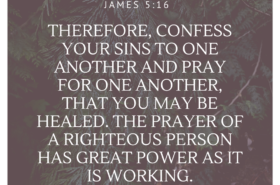
“I have loved you with an everlasting love, therefore I have continued in my faithfulness to you.”
Jeremiah 31:3
Therefore… that word interests me, because it means “for that reason” or “because of that”. God’s faithfulness to us continues because of His everlasting love. He isn’t faithful from obligation. He didn’t say, “I have told you I would be faithful to you, therefore I have continued in my faithfulness to you.” He said, “I have loved you with an everlasting love, therefore I have continued in my faithfulness to you.”
I am the kind of person who has always struggled with the belief that the people who spend time with me do so because they’re either told to or because they said they would at some point in the past, so they now have to follow through. In my mind, love is synonymous with faithfulness. And although in some respects that is true (love that is unfaithful is not love, faithfulness cannot occur without some form of love), it turned love into a sort of emotionless loyalty in my mind. Rather than love meaning cherishing, enjoying, delighting in (Zephaniah 3:17; Psalm 149:4), love has come to mean something more contractual and forced.
Why is this? There’s a root that tells me I’m unlovable. And without God, absolutely I am, in the cosmic sense especially. I sin. I even delight in sin. I go so far as to intentionally offend others and ultimately God for my own pleasure. Why would God love me? Why should He?
“I have continued in my faithfulness to you.” This makes sense to me. This could stand alone and I’d accept it without hesitation. I’ve seen faithfulness continued by other people when they have every reason to break their commitment. I have done it myself, numerous times. I’ve been faithful to my clients when I want to leave because I told them I would complete a project. I’ve been faithful to appointments because I said I would follow through, not because I wanted to. Before the “therefore”, I would expect to find the expression of duty.
But instead? “I have loved you with an everlasting love.”
[bctt tweet=”When I read Jeremiah 31:3, before the “therefore”, I would expect to find the expression of duty. But instead? “I have loved you with an everlasting love.”” username=”helloemilyurban”]
This makes me incredibly uncomfortable.
But why is that?
Because it means that His faithfulness is neither dependent on my merit or His name signed on a dotted line.
It means that it is not something that will expire or can be rescinded.
(I’m far more comfortable with that, because a love that ends is what a sinful, unfaithful person deserves.)
God’s faithfulness stems from this everlasting love! What incredible, beautiful news. This love cannot change even though I do. This love cannot end because it is outside of my beginning and end – it is eternal. This love is based on the fact that it is who God is – He is love and He loves me!
This love is eternally huge, all-embracing, forgiving, cherishing, delighting – and faithful.
He will never leave me nor forsake me. (Deuteronomy 31:6.) He is with me until the end of the age (Matthew 28:20.)
Because that’s simply how His love is. It’s how much He loves me.


